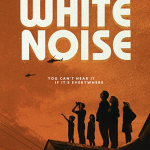There are some films that come from out of the blue and take your breath away. Such is the case with Matthew Warchus’ “Matilda the Musical,” an amazing adaptation of the successful 2017 stage play. Not familiar with the source material, I wasn’t prepared for the glorious songs written by Tim Minchin, the touching journey of the titular character or the fierce energy with which all of this has been executed.
Obviously, those familiar with the musical wouldn’t be surprised by this, but no one could have been prepared for Alisha Weir, the heartbreaking dynamo who tackles the lead role with the vigor of a hungry alligator going after a near-sighted golfer. Only 10 years-old at the time of filming, the young performer throws the production on her back and carries it with a sense of assurance that belies her age. She is astonishing and makes “Matilda” not simply a movie to watch but an entertainment to experience.
Based on Roald Dahl’s novel, Matilda is a young girl who takes refuge in the books she reads as well as her imagination. Her deplorable parents (Stephen Graham and Andrea Riseborough) ignore her, having gone so far as to forget to send her to school. She’s educated herself with the help of librarian Mrs. Phelps (Sindhu Vee), becoming a master of most subjects, her penchant for telling stories her specialty. After a visit from a social worker, Matilda is forced to go to a traditional school, however as run with an iron hand by Agatha Trunchbull (Emma Thompson), it resembles a prison more than an institution of learning.
Of course, because she’s new and unique, our pint-sized heroine is bullied by her classmates and Trunchbull before discovering others who’ve been subjected to similar abuse. Having had to contend with her neglectful parents for years, Matilda is more than able to stand up for herself and soon she finds herself the de facto leader of a rebellion in the making.
Though the story is dire in nature, Warchus vibrant aesthetic as well as the energy that courses through the film never lets the viewer lose focus on its theme of hope. The production design by David Hindle and Christian Huband contains so much eye-candy, developing visual diabetes is a concern. The bright, vivid colors used are reminiscent of those found in a children’s book while the ornate, complex sets are a key element in plunging the viewer into a world that thumbs its nose at convention. Moments in which Matilda is floating through the sky that exists in her imagination are juxtaposed against the dank, gulag-like look of her school and speak to Hindle and Huband’s versatility as well as underscore the vast difference between the refuge Matilda finds in her mind and the stark reality she must deal with.
All involved are very good, Graham and Riseborough having great fun hamming it up, Vee and Lashana Lynch as Miss Honey, the teacher who proves to be Matilda’s salvation, providing an anchor of realism. Thompson, operating under a mountain of makeup in a cumbersome outfit, delivers that sort of outsized turn necessary to bring the grotesque Trunchbull to life. But it is Weir who steals the show. Her performance is a delight to witness, as she conveys a sense of strength necessary to show Matilda is a survivor which develops into an exuberant expression of self-actualization that gives the film its heart and soul. Weir’s confidence and talent is astonishing, so much so that “Matilda” will likely be referred to as the debut of a major talent in the not-to-distant future.




